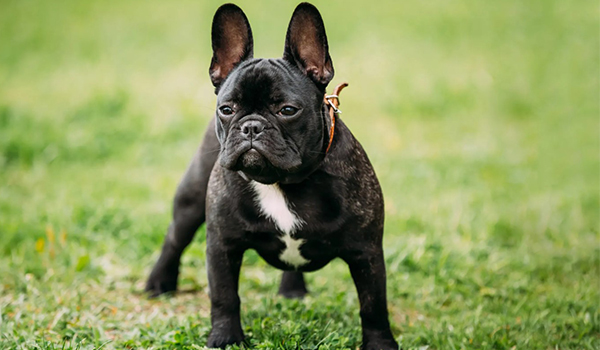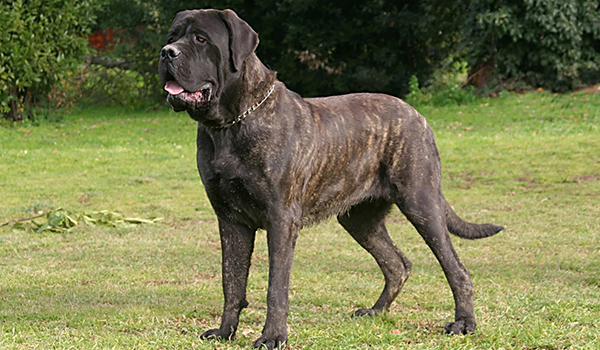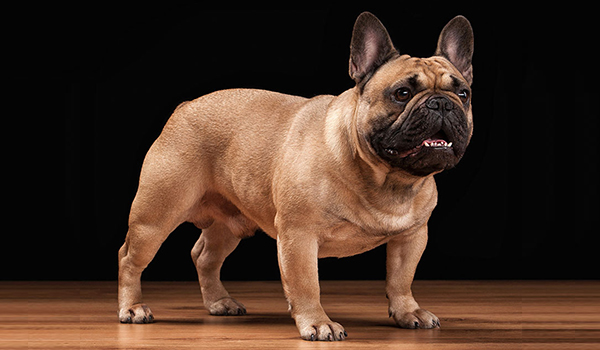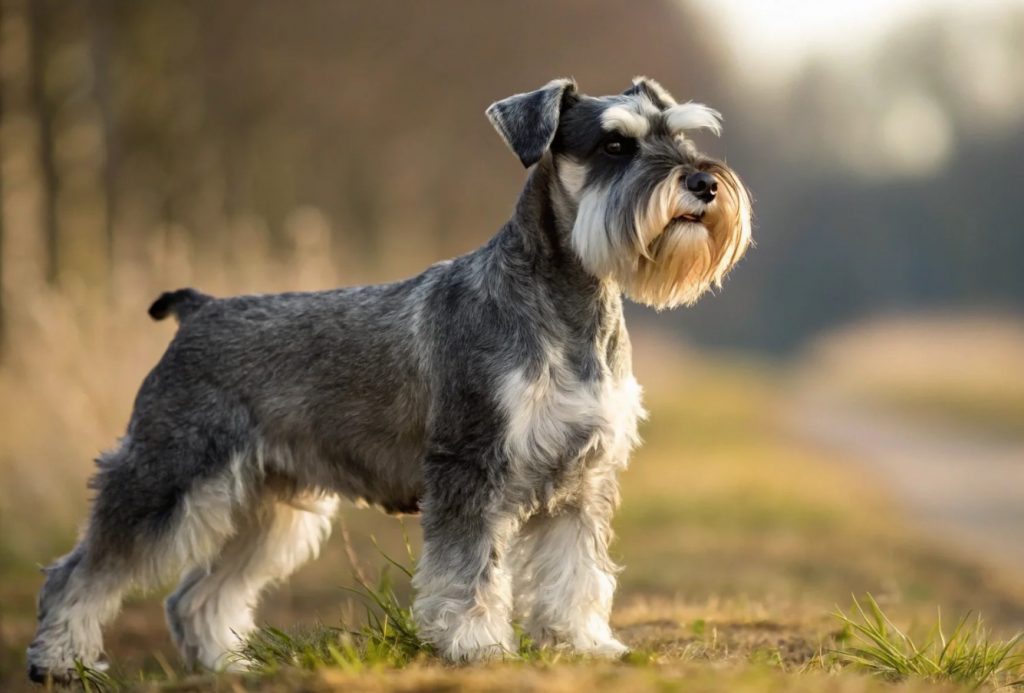
The Miniature Schnauzer is a breed of distinctive charm, intelligence, and spirited personality. With their bushy eyebrows, wiry beard, and compact, sturdy build, they are one of the most recognizable and popular terriers in the world. They perfectly blend the feisty, alert nature of a terrier with a more trainable and devoted temperament, making them an excellent companion for a wide range of families.
This comprehensive guide will explore everything a future owner needs to know about the Miniature Schnauzer, from their origins as German ratters to their modern-day grooming needs, to help you decide if this charismatic and clever dog is the right fit for your home.
Breed Overview
- Group: Terrier
- Height: 12 – 14 inches (at the shoulder)
- Weight: 11 – 20 pounds
- Life Span: 12 – 15 years
- Coat: A double coat with a soft undercoat and a hard, wiry outer coat. It is low-shedding and hypoallergenic, but requires regular grooming. Colors include salt and pepper, black and silver, and solid black.
A Brief History: The German Farm Dog
The Miniature Schnauzer is the smallest of the three Schnauzer breeds (Giant, Standard, and Miniature). They were developed in Germany in the late 19th century by breeding the Standard Schnauzer with smaller breeds like the Affenpinscher and Miniature Poodle. Their purpose was to create a small, efficient, and hardy farm dog capable of ratting and guarding the property.
Their name “Schnauzer” comes from the German word for “snout,” a reference to their distinctive bearded muzzle. They were recognized by the AKC in 1926 and quickly became popular as both a spirited companion and a skilled competitor in dog sports.
The Miniature Schnauzer Temperament: The Personable Terrier
The Miniature Schnauzer’s personality is a delightful mix of terrier spunk and companion-dog loyalty. They are often described as having a “big dog” personality in a small, portable body.
- Alert & Spirited: True to their terrier roots, they are lively, alert, and fearless. They make excellent watchdogs and will readily bark to announce visitors or anything out of the ordinary.
- Intelligent & Trainable: They are highly intelligent and generally more obedient and eager to please than many other terrier breeds. They excel in obedience, agility, and other dog sports.
- Affectionate & Family-Oriented: They form strong bonds with their families and thrive on being involved in all activities. They are typically good with children and other family pets, especially if raised with them.
- Playful & Charming: They retain a playful, sometimes mischievous, demeanor throughout their lives and are known for their expressive, almost human-like, facial expressions.
- Can Be Stubborn: Their intelligence can sometimes translate into a stubborn streak, especially if they sense a lack of consistent leadership from their owner.

Caring for Your Miniature Schnauzer
Exercise: An Active Mind and Body
Miniature Schnauzers are energetic and require daily physical and mental stimulation to be happy and well-behaved.
- Daily Requirements:At least 30-60 minutes of activity daily. This should include:
- Brisk Walks and Play: They enjoy walks, games of fetch, and play sessions in a securely fenced yard.
- Mental Stimulation: This is crucial. Puzzle toys, training sessions, and learning new tricks are essential to prevent boredom.
- A Job is Appreciated: They thrive when they have a purpose, whether it’s a dog sport, advanced obedience, or simply being your daily walking partner.
Grooming: A Significant Commitment
Their distinctive look requires dedicated upkeep. Owners have two main choices:
- Professional Stripping or Clipping: To maintain the texture and color of their wiry coat, they need to be professionally groomed every 5-8 weeks. “Stripping” (hand-pulling dead hair) preserves the coat’s harsh texture, while “clipping” (using electric clippers) is easier but can soften the coat and fade its color over time.
- At-Home Brushing: Brushing 2-3 times a week is necessary to prevent mats and tangles, especially in their signature beard, legs, and skirt.
- Other Needs: Their beard can become dirty and wet after eating and drinking, requiring regular wiping. Regular ear cleaning, teeth brushing, and nail trimming are also essential.
Training: Consistency and Positive Fun
Training a Miniature Schnauzer is generally a rewarding experience due to their intelligence, but it requires a consistent approach.
- Start Early: Begin socialization and puppy training immediately. Positive exposure to a wide variety of people, animals, and environments is key to building a confident, well-adjusted dog and curbing any potential territorial behavior.
- Use Positive Reinforcement: They respond brilliantly to reward-based training with treats, praise, and play. Keep sessions short, fun, and engaging to hold their attention.
- Manage Barking: Teach a “quiet” command from a young age to control their alert barking, which can become a nuisance if not managed.
- Be a Confident Leader: They respect owners who provide clear, consistent rules and boundaries.
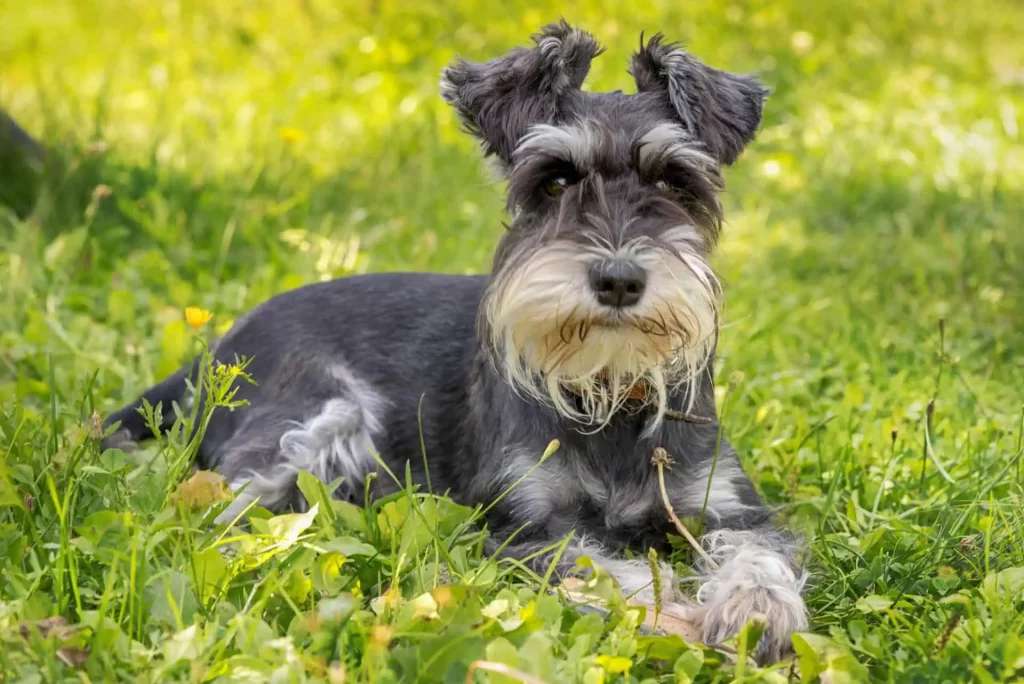
Health: What to Be Aware Of
Miniature Schnauzers are generally a healthy breed, but they are prone to certain genetic conditions.
- Pancreatitis: This is a common and serious concern. Their metabolism cannot handle high-fat foods. A low-fat diet is essential to prevent this painful and potentially life-threatening condition. Avoid giving table scraps, especially fatty ones.
- Hyperlipidemia: An elevated level of fats (lipids) in the blood, which is related to their risk for pancreatitis.
- Bladder Stones: They can be prone to forming stones, which may require a special diet or surgery.
- Eye Problems: Such as cataracts and progressive retinal atrophy (PRA).
- Dental Issues: Like many small breeds, they are prone to dental disease. Regular teeth brushing is important.
Is a Miniature Schnauzer Right For You?
A Miniature Schnauzer might be your perfect match if you:
- Want an intelligent, trainable, and affectionate family companion.
- Are looking for a low-shedding, hypoallergenic dog.
- Have an active lifestyle and can provide daily mental and physical exercise.
- Don’t mind a vocal watchdog and are committed to grooming maintenance.
- Are a first-time dog owner looking for an easier terrier experience.
You might want to reconsider if you:
- Want a completely quiet, low-energy lap dog.
- Are unprepared for the financial and time commitment of regular professional grooming.
- Cannot commit to providing a strict, low-fat diet.
- Are frustrated by a stubborn streak or alert barking.
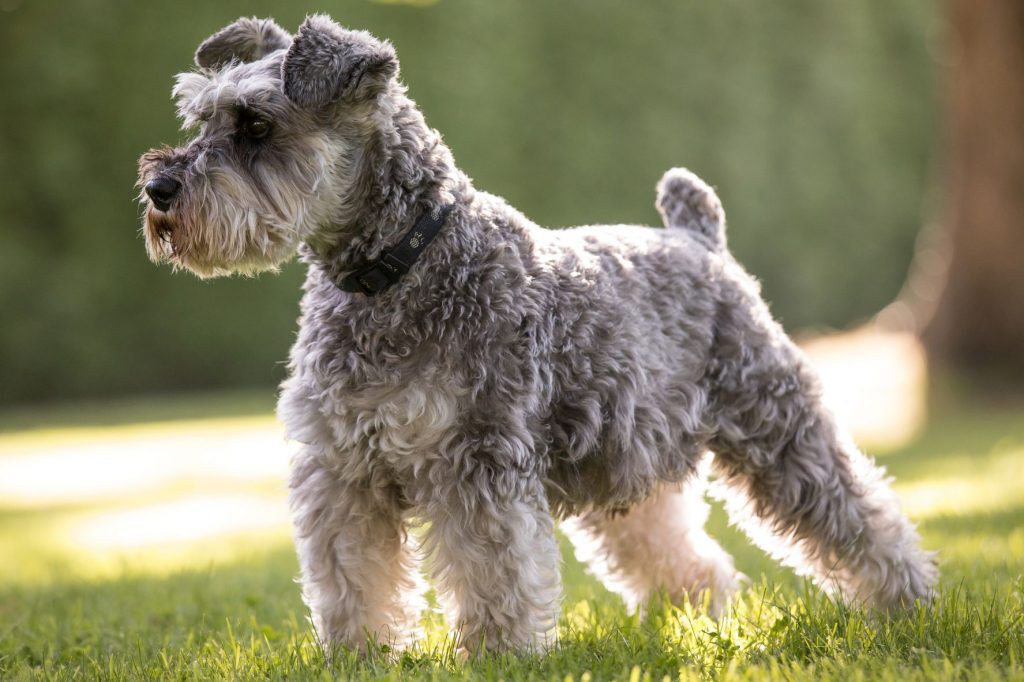
Finding Your Miniature Schnauzer
- Reputable Breeders: Choose a breeder who prioritizes health and temperament. They should perform health tests on their breeding dogs (eye clearances, and may test for specific genetic conditions) and be knowledgeable about the breed’s needs, especially regarding diet.
- Rescue & Shelters: Miniature Schnauzer-specific rescues are very active. Many dogs end up there because owners were unprepared for their grooming needs or energy level. Adopting an adult can be a wonderful way to provide a second chance.
Understanding the Cost: The initial purchase price from a reputable breeder in the U.S. typically ranges from $1,000 to $2,500+. However, prospective owners must budget for significant ongoing costs, including professional grooming ($50-$80+ per session every 5-8 weeks for life), high-quality, low-fat food, and preventative healthcare.
Bringing a Miniature Schnauzer into your life means welcoming a charismatic, intelligent, and loyal partner. In return for your dedicated grooming and active engagement, you will gain a devoted companion whose spirited personality and unwavering loyalty will bring endless joy and activity to your home.

